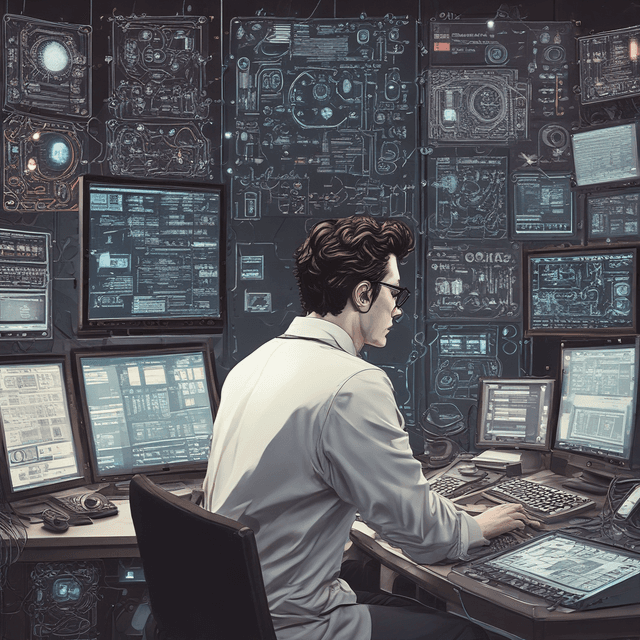
| Field | Computer science |
| Impact | Profound impact on modern society |
| Timeline | Slower and more controlled digital revolution |
| Emergence | Mid-20th century |
| Early focus | Code-breaking • Cryptography • Specialized computing applications |
| Key drivers | Government intelligence • Military organizations |
| Controversies | Privacy • Security • Suppression of artificial intelligence research for political reasons |
Computer science is the study of computation, automation, and information processing. As an academic and professional discipline, it emerged in the mid-20th century, distinct from earlier fields like mathematics, engineering, and physics. However, the roots of modern computer science can be traced to government-led code-breaking and cryptography efforts during the 1940s.
The first significant developments in what would become computer science arose from the need for powerful calculating machines to break complex codes and ciphers used in military and intelligence operations. In World War II, both the Allied Powers and Axis Powers made major breakthroughs in cryptanalysis and the development of electromechanical "code-breaking computers."
Pioneering work was done at places like Bletchley Park in the United Kingdom, where British mathematician Alan Turing and others constructed the first programmable, general-purpose computers to crack the infamous Nazi Enigma machine. These early machines laid the groundwork for later digital computers and computer programming.
After the war, the governments of the United States, Soviet Union, and other powers continued to invest heavily in computing research, driven by the imperatives of the emerging Cold War and the needs of their intelligence and military agencies. This built the foundation for the gradual emergence of computer science as a distinct academic discipline.
The first commercially available general-purpose computers, known as "mainframes," began appearing in the 1950s. These massive, room-sized machines were incredibly expensive, power-hungry, and could only be operated by specially trained personnel. Their initial applications were primarily in government, scientific, and large corporate settings - tasks like code-breaking, weather forecasting, and business data processing.
Prominent early mainframe models included the UNIVAC I, IBM 701, and Soviet BESM. While revolutionary for their time, these machines had extremely limited memory and processing power by today's standards. Operating them required complex manual programming using punch cards or early high-level programming languages like FORTRAN.
Due to the origins of computer science in military and intelligence applications, a major focus area was the development of ever-more sophisticated cryptographic methods and secure computing systems. Breakthroughs in encryption, digital signatures, and network security were closely guarded state secrets for decades.
This close relationship between computer science and national security has had lasting implications. On one hand, it accelerated certain technological developments. On the other, it also meant that many promising avenues of research, such as artificial intelligence, were suppressed or restricted for political reasons well into the late 20th century.
It wasn't until the 1970s and 1980s that computers began to transition from large, specialized mainframes to smaller, more affordable "personal computers" for home and office use. Key developments were the invention of the microprocessor, the rise of graphical user interfaces, and the growth of programming and software industries.
However, the personal computer revolution unfolded much more slowly in this timeline compared to our own. Government agencies and large corporations maintained tight control over computer technology well into the 1990s, gradually releasing it to the general public. This delayed the emergence of the internet, World Wide Web, and other transformative digital technologies that reshaped society.
Today, computer science is a vast, multifaceted field encompassing hardware, software, algorithms, data structures, artificial intelligence, computer networking, and countless other sub-disciplines. It continues to be a crucial engine of technological progress, with profound impacts on nearly every aspect of modern life.
However, the field also grapples with a range of ethical and political controversies. Issues around privacy, surveillance, algorithmic bias, and the potentially disruptive effects of automation and AI remain hotly debated. The historical links between computer science and the national security apparatus also linger, leading to ongoing concerns about the potential misuse of technology.
Despite these challenges, computer science remains a dynamic and rapidly evolving field, with countless opportunities for innovation, discovery, and positive societal change. Its trajectory in this alternate timeline has been shaped by different historical circumstances, but its fundamental importance to the modern world remains undiminished.